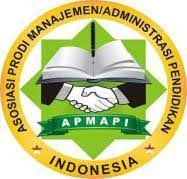Colonial Regulation on Education Management of Christianity in Indonesia Before Ethical Policy Period
DOI:
https://doi.org/10.21009/improvement.v11i2.51314Keywords:
Christian Education, Ethical Politics, Vereenigde Oostindische Compagnie (VOC), ZendingAbstract
The field of education in the colonial era is often studied in the context of the implementation of the Ethical Policy, one of which is based on the speech of Queen Wilhelmina in 1901 which emphasized that the Netherlands is a Christian country and is committed to helping the mission of that religion. This research attempts to answer the formulation of questions about political policies in Christian education management prior to the Ethical Politics period. The methodology used is a historical research type by going through literature searches, evaluating, verifying, and synthesizing evidence from the data collected. The results of this study indicate that education management policies have been pursued by the Vereenigde Oostindische Compagnie (VOC) since the early 17th century, where due to the influence of religious wars, this trading partnership also tried to replace Portuguese domination and Catholicism in Indonesia. The form of education in that era was still simple to teach obedience and religious rituals in individual teaching without class levels. Apart from a shortage of experienced educators, Dutch language was less popular than Portuguese and Malay. After the company collapsed in 1799, the Dutch government was neutral towards religious affairs since 1808. This caused many "Zending" (Protestant Evangelism) bodies to spread religion as well as establish a number of educational institutions as happened in Minahasa (since the 1830s) and in Batak lands (since the 1860s).
Downloads
Published
How to Cite
Issue
Section
License
Copyright (c) 2024 Kemas Badaruddin, Siti Zaila, Mirrah Salsabila, Syahrul Ramadhan

This work is licensed under a Creative Commons Attribution-NonCommercial-ShareAlike 4.0 International License.
Authors who publish with this Journal agree to the following terms:
- Author retain copyright and grant the journal right of first publication with the work simultaneously licensed under a creative commons attribution licensethat allow others to share the work within an acknowledgement of the work’s authorship and initial publication of this journal.
- Authors are able to enter into separate, additional contractual arrangementfor the non-exclusive distribution of the journal’s published version of the work (e.g. acknowledgement of its initial publication in this journal).
- Authors are permitted and encouraged to post their work online(e.g. in institutional repositories or on their websites) prior to and during the submission process, as it can lead to productive exchanges, as well as earlier and greater citation of published works.
-
Users/public use of this website will be licensed to CC BY-NC-SA (Attribution & Non-Commercial-ShareAlike)


